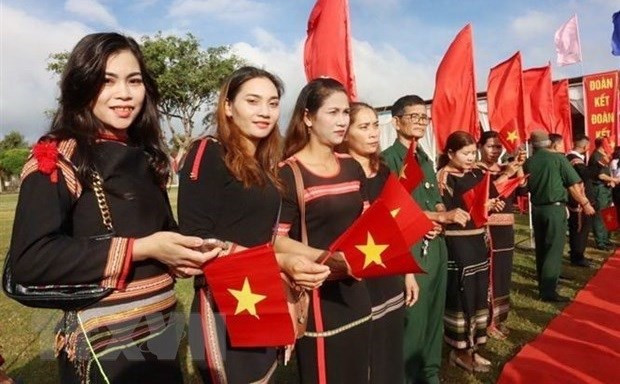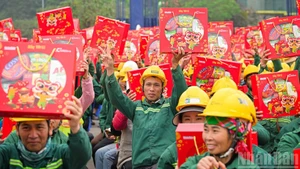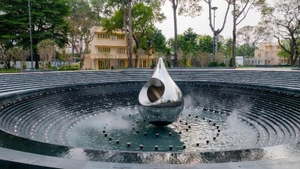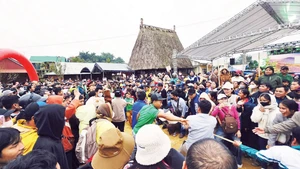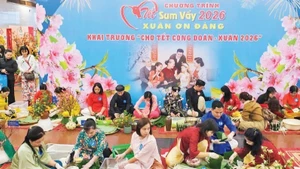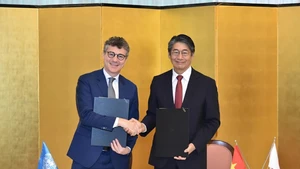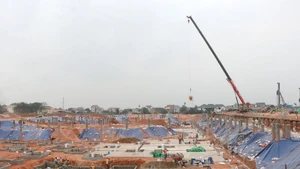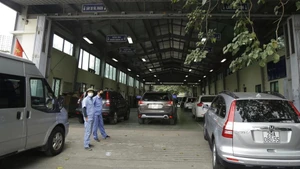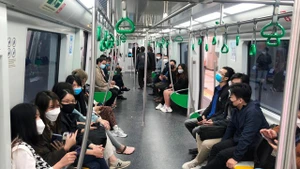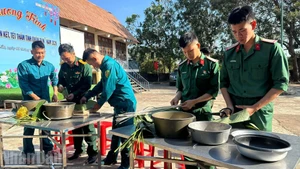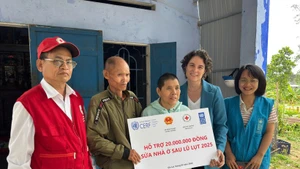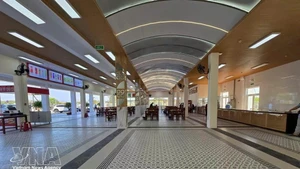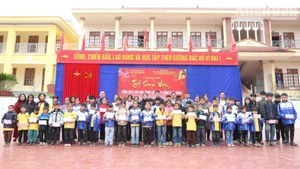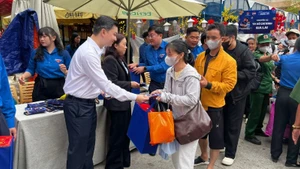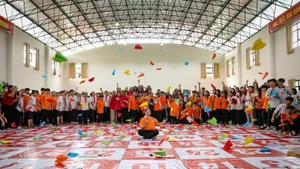Over the past years, along with achievements on socioeconomic development, the material and spiritual life of ethnic people in the province has improved.
Located in the heart of the Central Highlands region, Dak Lak has an important geographical position in terms of security, politics, economics, culture and society. It is home to 49 ethnic groups with over 667,000 people, accounting for 35.7% of the province's population.
In addition to the ethnic groups that have long resided in the province such as the Ede, Mnong, and Gia Jai, other ethnic minorities have migrated from other regions in Vietnam.
There are four main religions with about 608,403 followers in the province. They actively participate in patriotic emulation movements and solidarity campaigns.
About 4,700 local people are doing business and living in more than 30 countries around the world.
Y Giang Gry Nie Knong, President of the Vietnam Fatherland Front (VFF) Committee of Dak Lak province, said that in recent years, social order and security in the province have always been guaranteed.
Playing a core role in building the great national unity bloc, the provincial VFF Committee has focused on directing and guiding its member organisations and the VFF chapters at all levels to develop specific programmes to strengthen consensus and unity in society, he said.
The VFF committees at all levels in the province have regularly coordinated with local authorities and member organisations to renew and diversify forms of communications and education among cadres, Party members and people about the patriotic tradition, kindness and tolerance of the nation, the Party’s policies, and the State's legal documents, thereby building social consensus and raising a sense of responsibility in the cause of building and safeguarding the Fatherland.
The VFF committees at all levels have also coordinated with authorities to select and honour over 1,000 prestigious citizens from ethnic groups. It has organised the great national solidarity festivals in residential areas on the occasion of the Traditional Day of the Vietnamese Fatherland Front, which falls on November 18 every year.
The provincial VFF has actively mobilised dignitaries and followers of religions in the province to comply with the Party and State’s guidelines, policies, and laws, to live a good secular and religious life, to join efforts with the nation in building and safeguarding the Fatherland, and to participate in humanitarian charity activities to support and help poor, disadvantaged people.
Besides, it has called on on people from all walks of life to respond to patriotic emulation movements, and social security programmes, contributing to the local socioeconomic development.
It has also served as a bridge to connect donors and needy people.
Raised donations have been used to build and repair more than 7,700 houses and support over 2,500 poor households to escape poverty sustainably. As a result, the province's poverty rate was reduced from 27.55% in 2005 to 7.91% by the end of 2021.
During the COVID-19 pandemic, Party committees and authorities at all levels raised a fund of over 57.5 billion VND to support affected people. Other activities were conducted to support disadvantaged people and victims of natural disasters or fires.
The above results have affirmed the strength of great solidarity of the ethnic groups in the province in the spirit of Resolution No. 23-NQ/TW, an important factor contributing to gradually building Dak Lak into a rich, beautiful, civilised, and unique province, worthy of its position in the centre of the Central Highlands region.
